Introduction
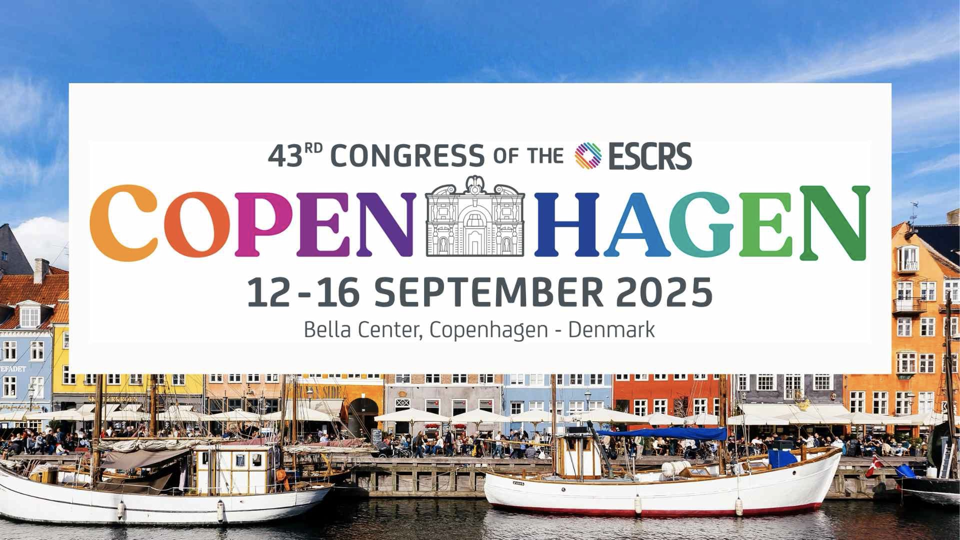
ESCRS 2025 – The largest ophthalmology congress in Europe, held from September 12–16, 2025 at Bella Center, Copenhagen, Denmark
In September, the 43rd Annual Congress of the European Society of Cataract and Refractive Surgeons (ESCRS) took place in Copenhagen, Denmark. Known worldwide as ESCRS 2025, this congress has become one of the most influential platforms for ophthalmology, attracting over 4,000 surgeons, scientists, and experts across continents. More than a scientific event, ESCRS 2025 serves as a global stage where the future of ophthalmic surgery is envisioned, guided by the latest research, groundbreaking technologies, and collaborative knowledge exchange.
ESCRS 2025 – A Scientific Forum of Global Scale
The ESCRS Congress has earned its reputation as a premier academic gathering through decades of consistent growth. Once again in 2025, it received accreditation by the European Accreditation Council for Continuing Medical Education (EACCME®) with 33 European CME credits (ECMEC®s). These credits are recognized across Europe and beyond, ensuring that every participant gains not only scientific insights but also accredited professional development that strengthens global medical standards.
At ESCRS 2025, interdisciplinary collaboration was at the forefront. Researchers, clinicians, and medical technology innovators joined forces to share real-world data, clinical trial outcomes, and new treatment strategies. Open exchange models such as the World Café and ESCRS Arena encouraged active discussions, allowing attendees to learn from complex clinical case studies, surgical complications, and pioneering therapeutic approaches. This dynamic environment fostered both academic enrichment and practical takeaways that physicians could directly apply to patient care.
Breakthrough Technologies at ESCRS 2025

Exhibition space at ESCRS 2025: Alcon introduces next-generation refractive and cataract surgery solutions.
One of the highlights of ESCRS 2025 was the spotlight on disruptive technologies driving the future of ophthalmology. Central to this theme was the concept of personalization in refractive and cataract surgery. Artificial Intelligence (AI) tools were presented as transformative instruments that assist surgeons in diagnostics, surgical planning, and outcome forecasting. With AI integration, treatment can be customized to each patient’s unique eye structure, improving predictability and reducing surgical risks. This shift marks a major step toward precision medicine in eye care.
The congress also celebrated the three-decade evolution of Femtosecond Laser technology. Once a pioneering technique, it is now firmly established as a cornerstone of refractive and cataract surgery. ESCRS 2025 not only reaffirmed its ongoing relevance but also showcased new generations of the technology designed to deliver faster procedures, greater safety, and enhanced patient recovery. This retrospective and forward-looking perspective highlighted how innovation continuously reshapes standard practices in ophthalmology.
Specialized Days of Knowledge
In addition to its plenary sessions, ESCRS 2025 featured several dedicated program days such as Cornea Day, Glaucoma Day, and WSPOS Day for pediatric ophthalmology. These thematic sessions provided a deep dive into pressing issues and advanced treatment pathways in each subspecialty. Cornea Day explored new approaches to transplantation and keratoconus management, while Glaucoma Day examined novel strategies to manage intraocular pressure. WSPOS Day highlighted global challenges in combating the surge of pediatric myopia and presented collaborative solutions for early intervention.
The ability to combine groundbreaking research with real-world clinical experiences made these specialized days especially valuable. They empowered ophthalmologists not only with theoretical updates but also with practical strategies they could apply in their daily practice, ensuring that patients around the world benefit from the latest medical knowledge.
The Vietnamese Delegation at ESCRS 2025
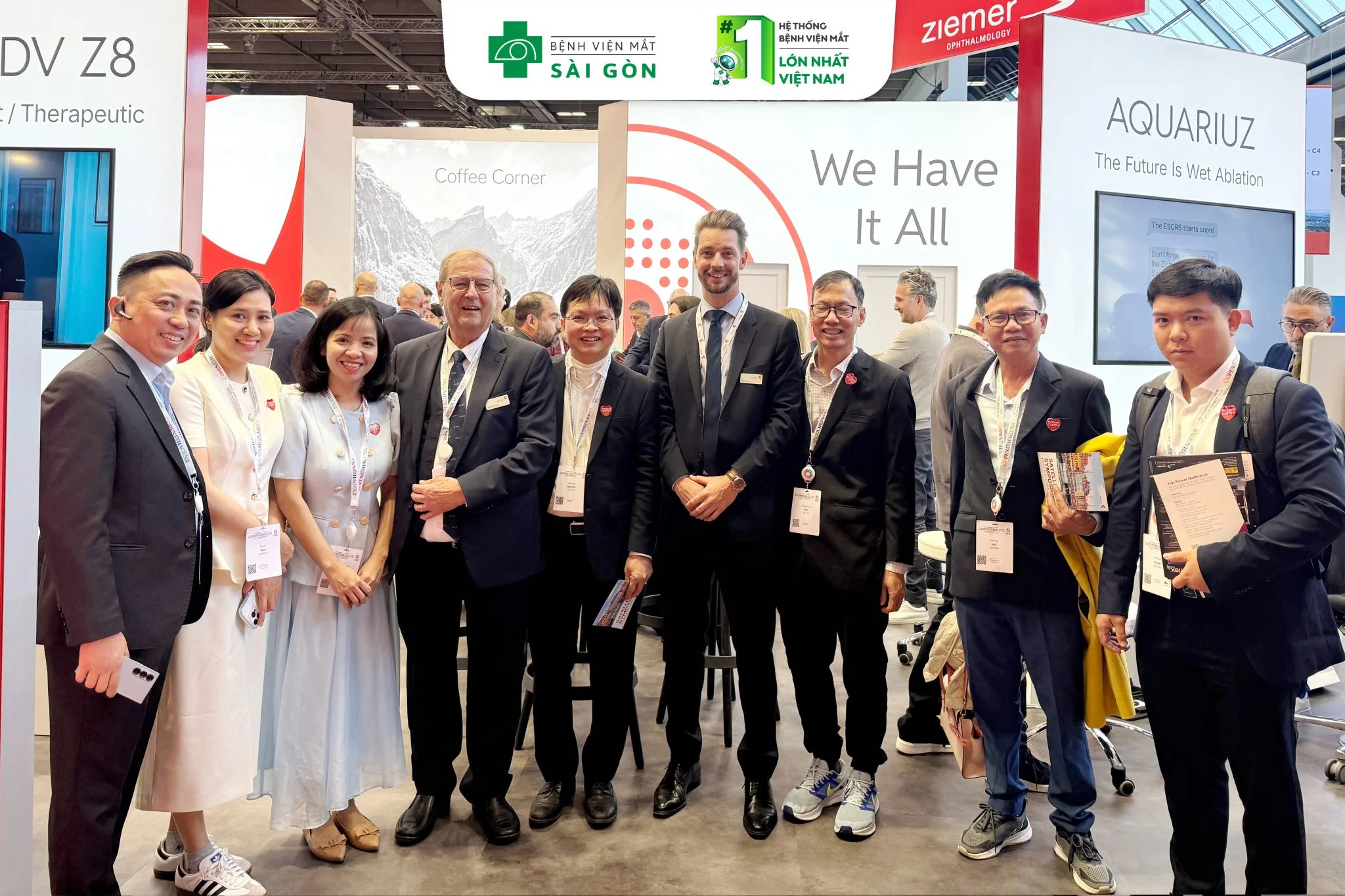
The delegation of Saigon Eye Hospital System doctors attending ESCRS 2025 in Copenhagen – where over 4,000 leading ophthalmology experts worldwide gathered.
A highlight of this year’s congress was the active participation of the delegation from the Saigon Eye Hospital System. Their presence represented a strong commitment to international medical collaboration. The delegation included senior leaders of the Saigon Medical Group as well as medical directors from its network of hospitals such as Nguyễn Du, Nha Trang, Cần Thơ, Vinh, and Cách Mạng Tháng Tám.
According to Dr. Hoang Trung Kien, Senior Executive Director of Medical Affairs, the congress was not only an academic mission but also a reaffirmation of their dedication to bringing advanced global treatments to Vietnam. He emphasized that every piece of knowledge and every new technology would be carefully evaluated and adapted to meet the needs of Vietnamese patients, ensuring both safety and optimal results. This underscores the vision of bridging international innovations with local healthcare delivery.
The Value of ESCRS 2025 for Vietnam
The participation of Vietnamese experts at ESCRS 2025 marked another step forward in global medical integration. More than a symbolic presence, it reinforced Vietnam’s growing influence in ophthalmology and its readiness to adopt cutting-edge solutions. By acting as a bridge, the delegation is bringing home not only new treatment options but also a culture of continuous innovation and patient-centered care.
In a time when myopia, astigmatism, and other eye conditions are sharply increasing, especially among younger populations, adopting the technologies and strategies introduced at ESCRS 2025 is essential. AI-powered diagnostics, laser surgery for thin corneas, and advanced intraocular lens designs all present opportunities to significantly improve visual outcomes and elevate the standard of care in Vietnam.
ESCRS 2025 in Copenhagen concluded successfully, leaving behind not only scientific achievements but also a spirit of connection and renewal. It gathered the brightest minds in ophthalmology to collectively envision the future of eye care. For Vietnam, the congress was more than an event; it was a gateway to applying world-class knowledge and technology in domestic practice. With proactive engagement from its medical experts, Vietnam is positioned to enhance treatment quality and further solidify its place on the global map of ophthalmology.

 vi
vi 26-Sep-2025
26-Sep-2025
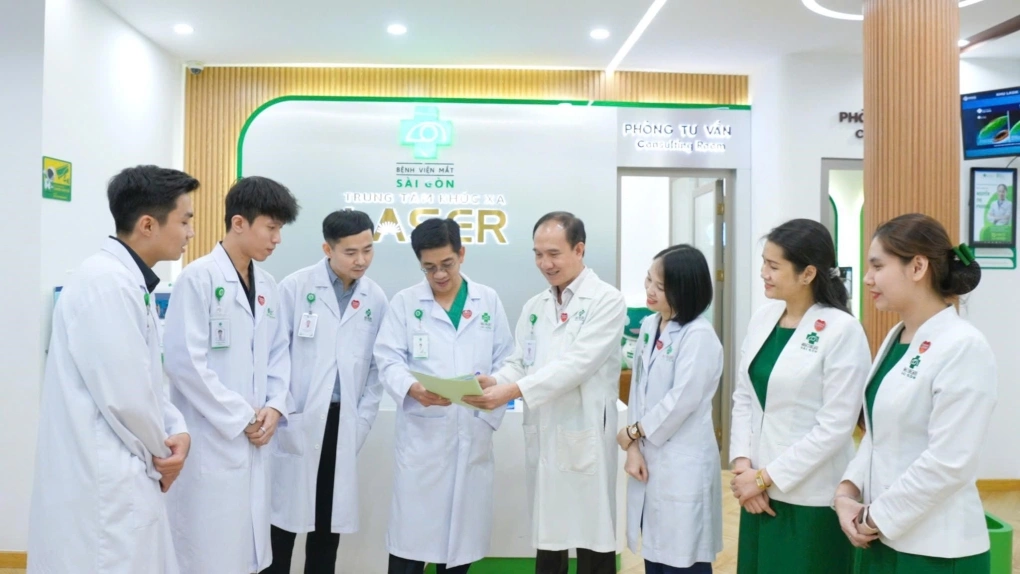
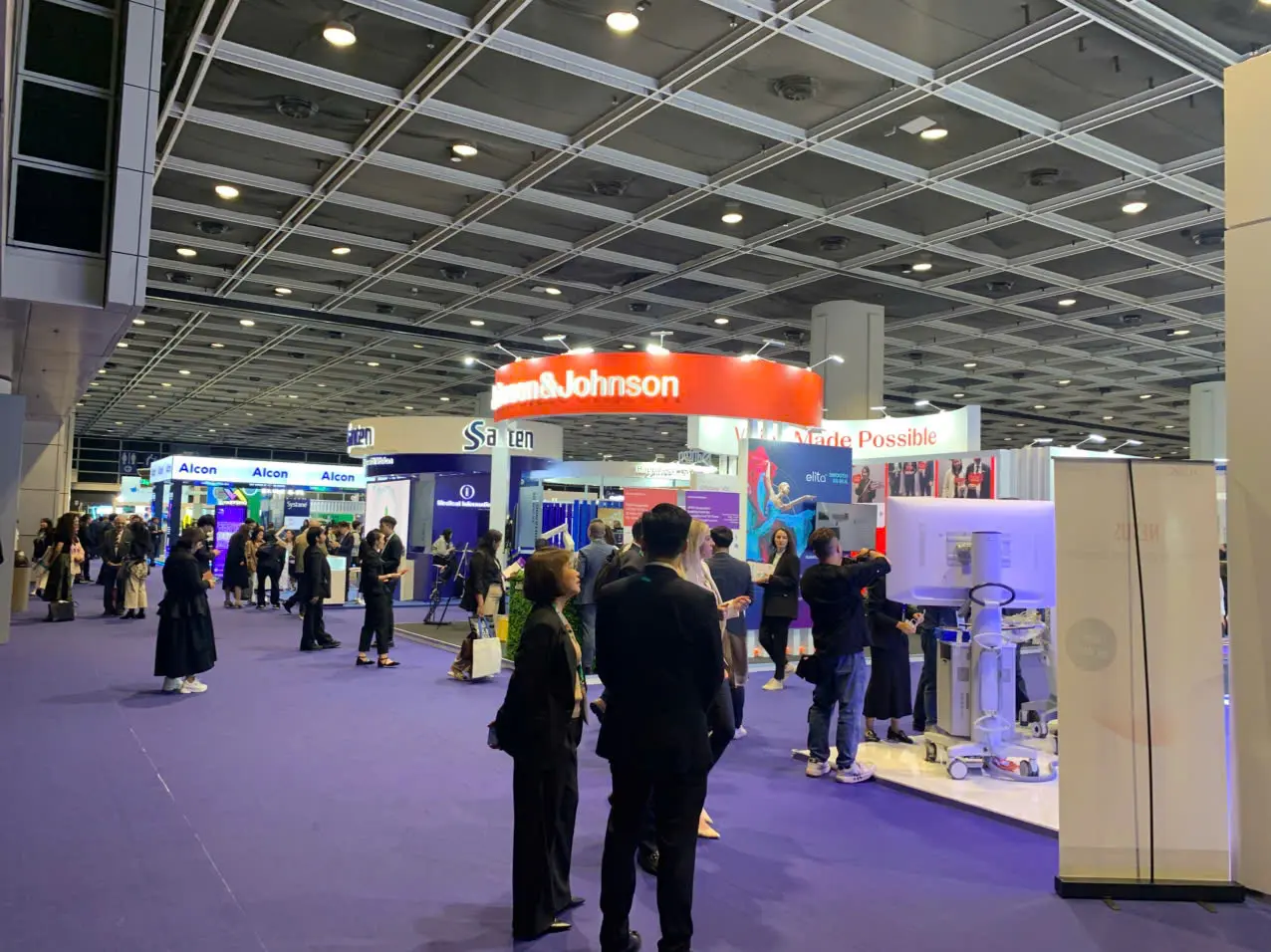

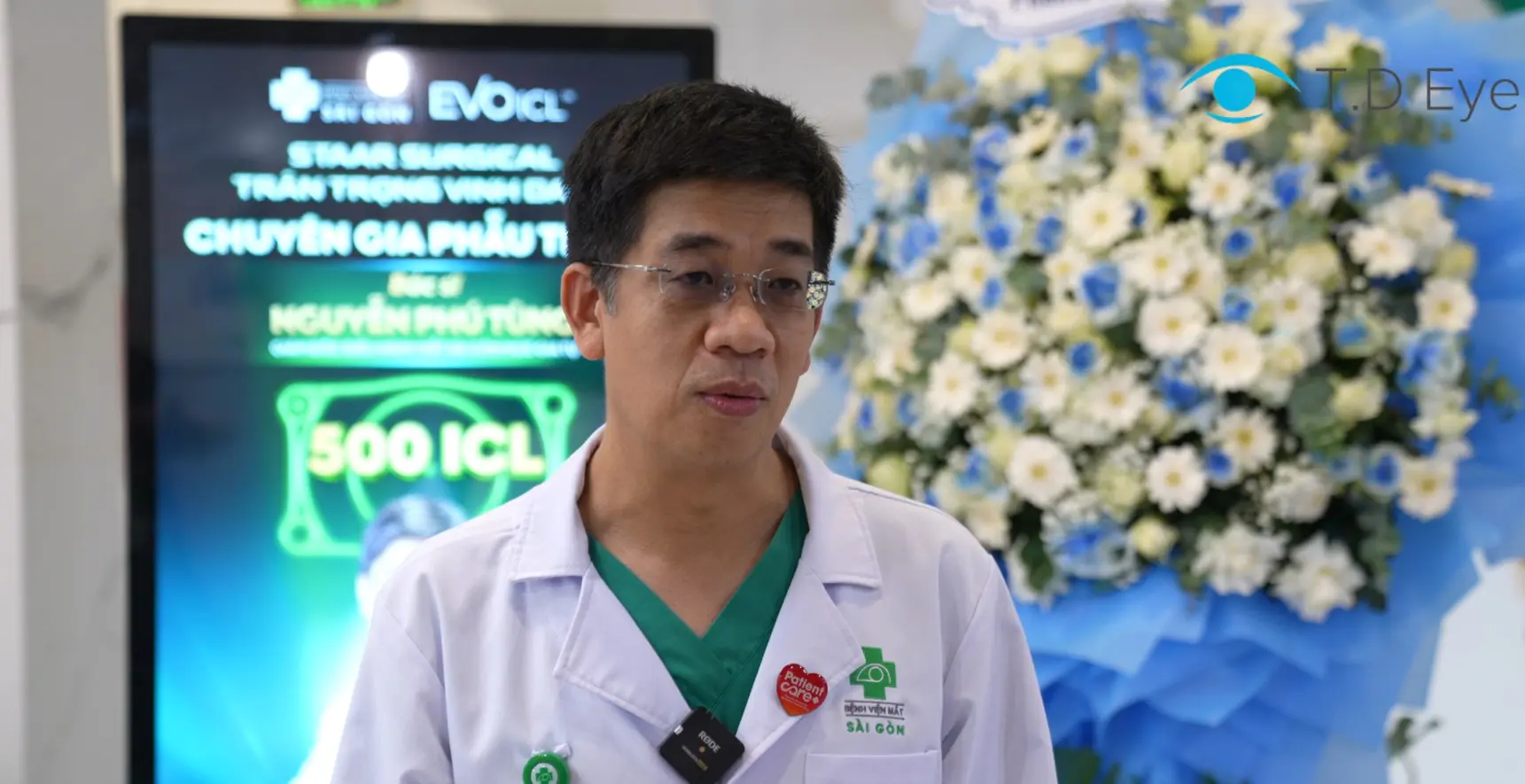
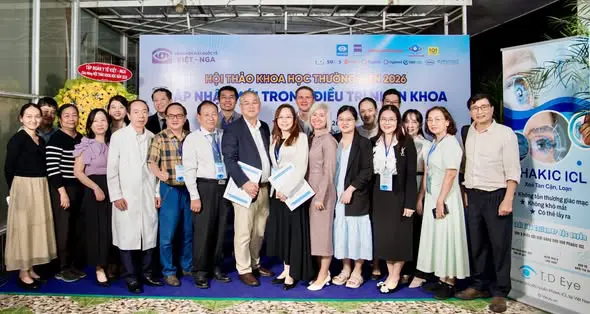

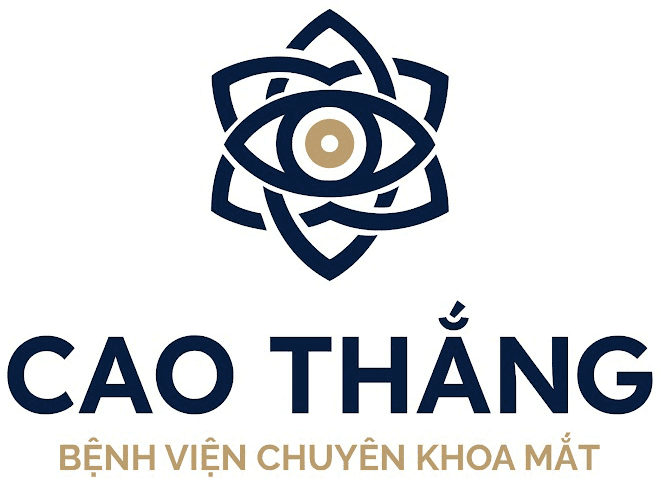




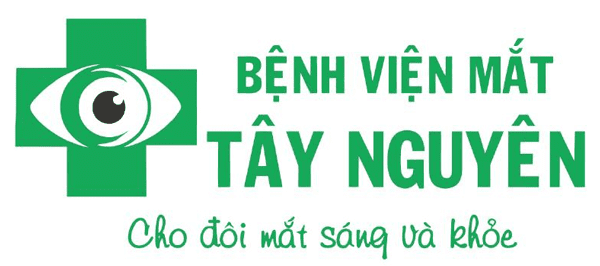
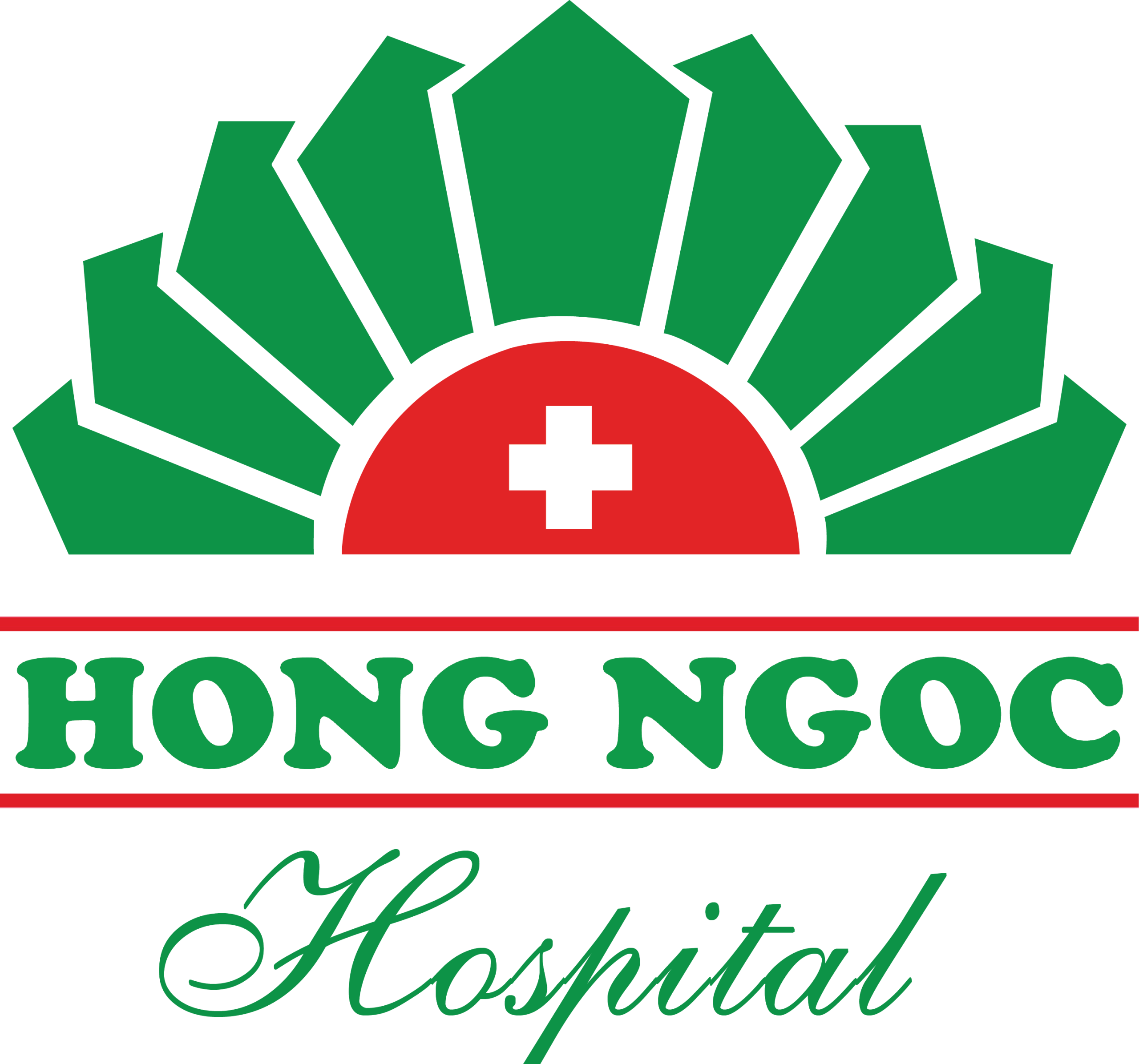
 0916.741.763
0916.741.763 Appointment
Appointment